If you drove through Jackson’s Fondren business district prior to July 6, 2022—the day abortion access ended in Mississippi—you wouldn’t have missed the Pink House. Painted in a Pepto-Bismol shade of pink, the Jackson Women’s Health Organization—aptly nicknamed the Pink House—was the state’s only standing abortion clinic. Driving by, you would have seen the graphic signs displaying mutilated fetuses that the anti-abortion protestors held, or heard the shouts as they harassed women entering the clinic. You would have also seen the Pink House Defenders in their brightly colored vests, escorting patients and offering them support and protection as they exercised their right to reproductive choice. With the fall of Roe, that right is long gone in Mississippi, as is the community of defenders that gathered each morning on the sidewalks. What was once the Pink House is now a high-end boutique. The presence of Mississippi’s last-standing abortion clinic has literally been whitewashed.
In the fall of 2023, interdisciplinary artist Kristen Tordella-Williams and writer Liz Egan, a former Pink House defender, invited reflections on the closing of the Jackson Women’s Health Organization. That project became Void, two 24” x 48” artist books with pages made of mended bed sheets and text written in iron dust. Void commemorates the Pink House and those who defended Mississippians’ tenuous access to vital reproductive healthcare. The books remind us of the void left behind by the fall of Roe v. Wade.
I got the chance to sit down and talk with Liz and Kristen about this project, Liz’s experience as a clinic escort, and also their thoughts on what it means to make a home—and grow roots—in the post-Roe Deep South. " [I]t was clear from the moment I moved [to Mississippi] that there was a fight against women and against women's access to health care,” Kristen told me. “But living in Mississippi, you can't look away from what's happening politically. It's just a maelstrom of American politics.”
For Liz, volunteering at the clinic was the first thing that made her feel rooted to Mississippi. “We find ourselves rooted in a lot of intricate connected ways,” she said. “And so the idea of ‘if you don't like it, you can leave,’ to me really undermines the sense of a place being capable of holding significance…At some point, someone has to stick around to be a voice.”
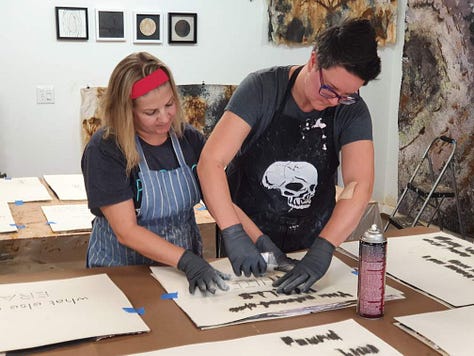
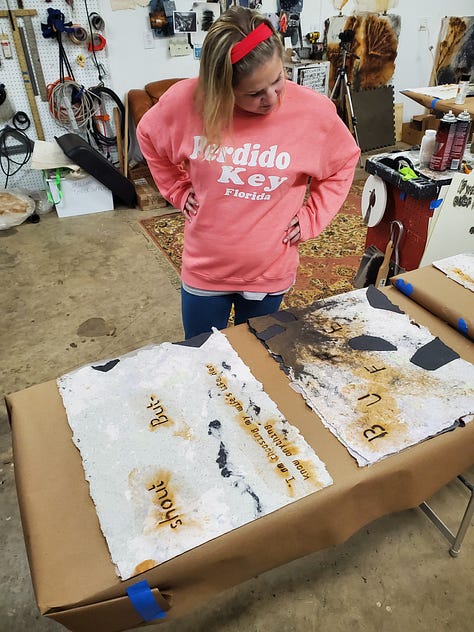
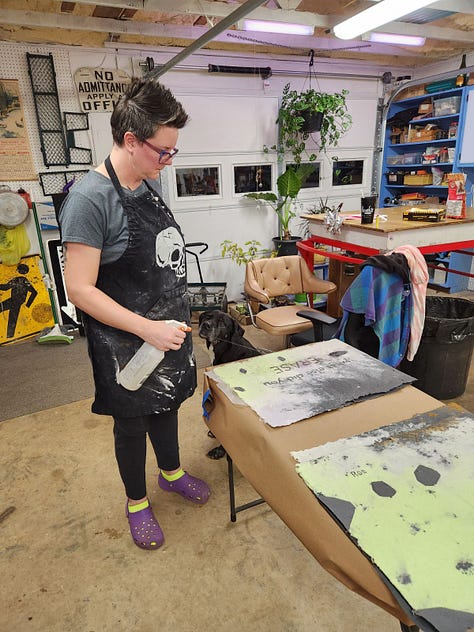
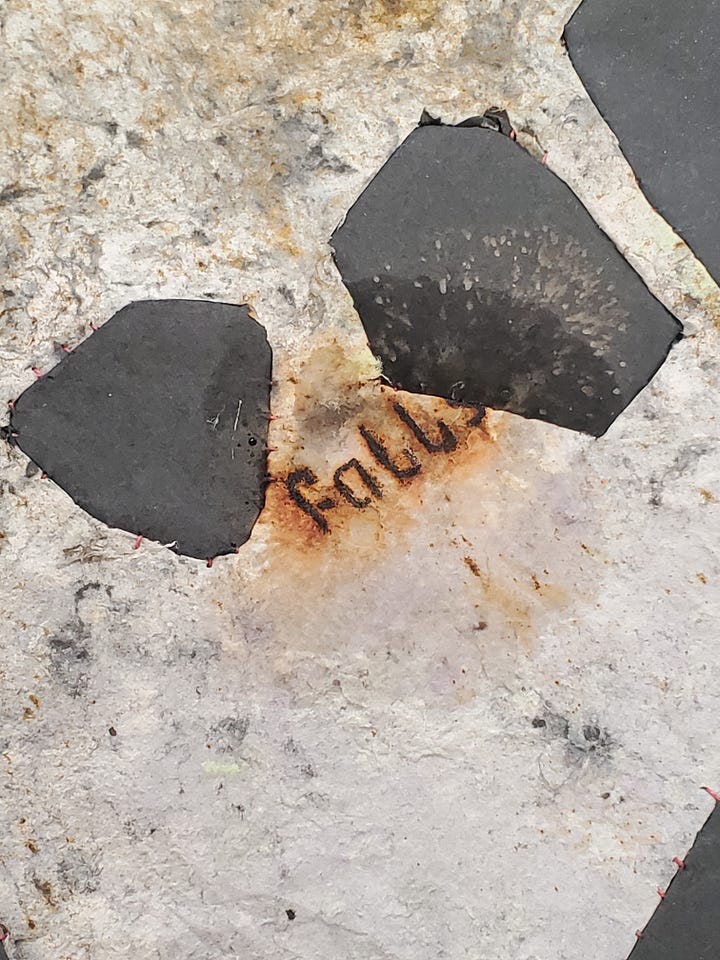
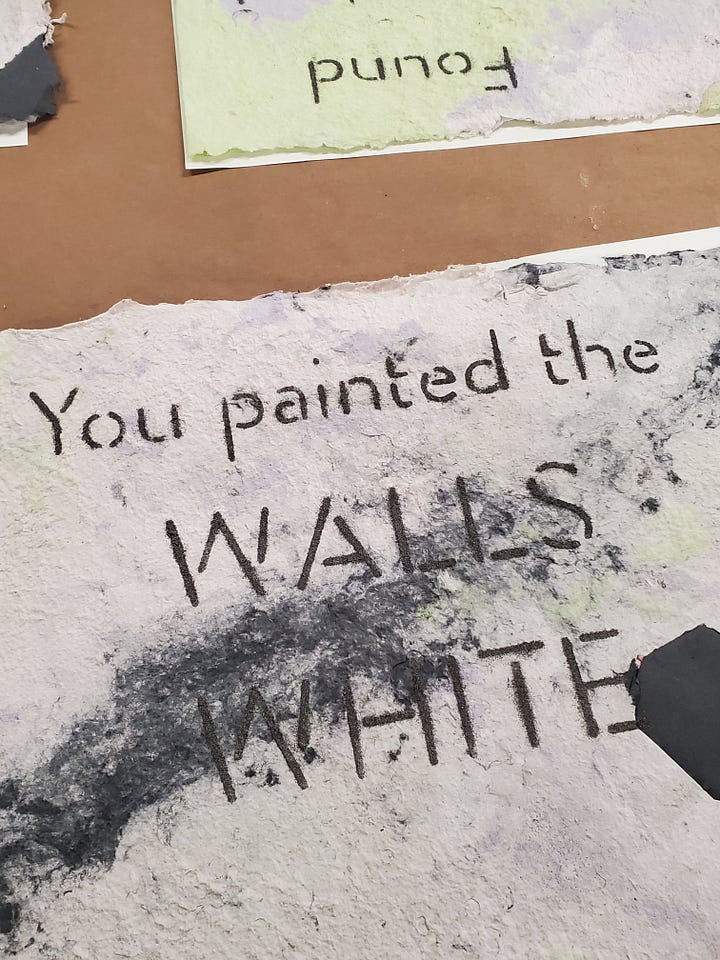
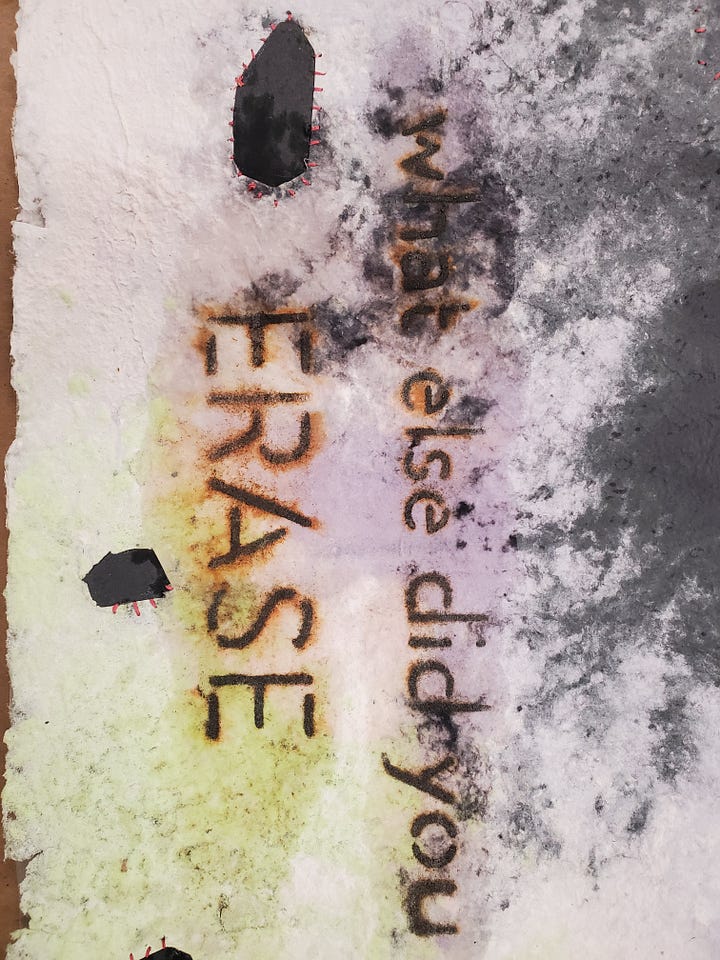
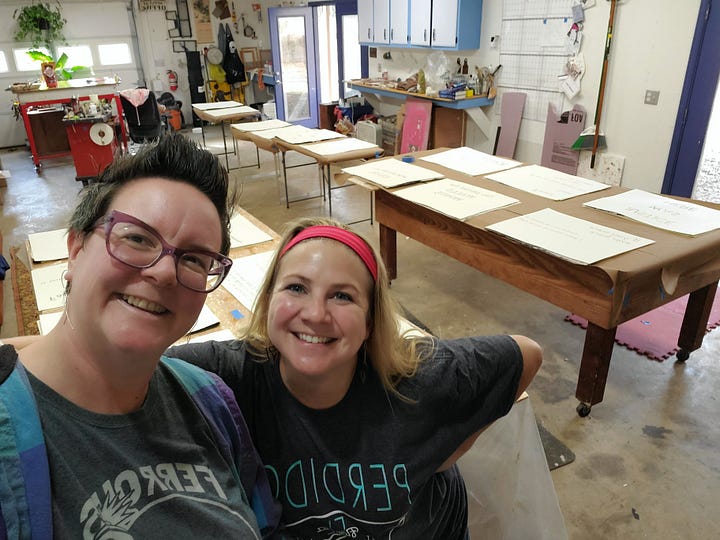
Thank you to Liz Egan and Kristen Tordella-Williams for speaking with me, and to Red Squared for recording our conversation in their Hangar studio in Jackson. This is a new format for Rooted, so please let me know if you enjoyed this conversation and want more like this.
Further reading:
Void was part of Kristen Tordella-Williams’s larger solo exhibition Dark Matter in the Hudson Galleries at the Mississippi University for Women.
More about the Pink House Defenders’ leaders Derenda Hancock and Kim Gibson




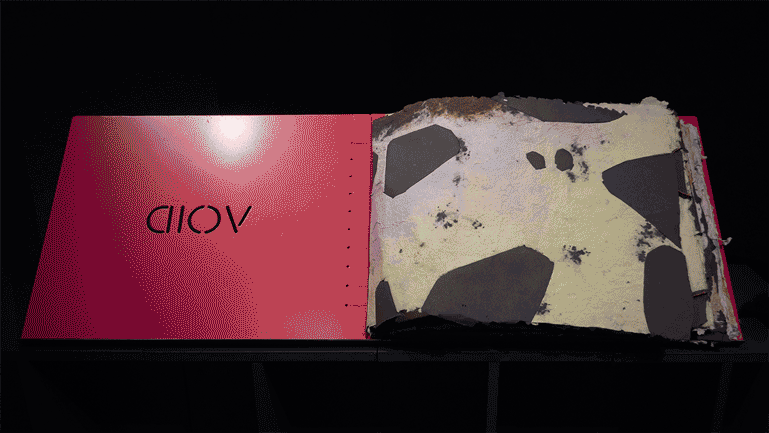




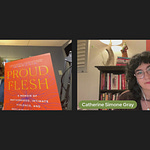



Share this post